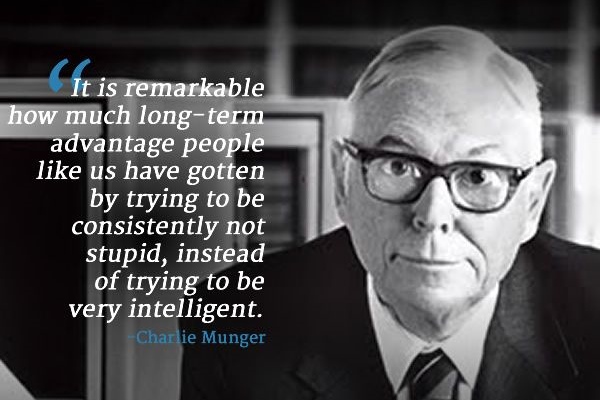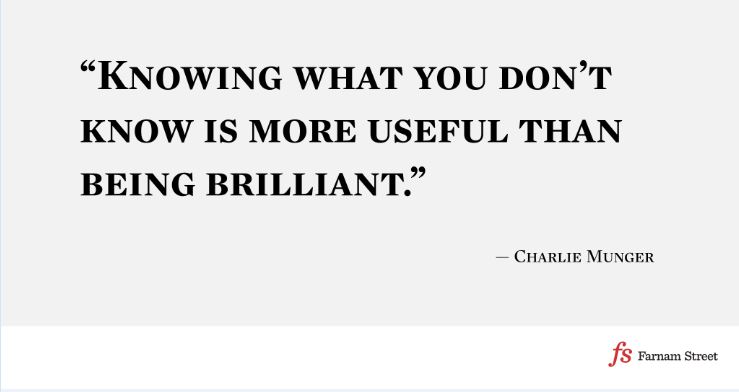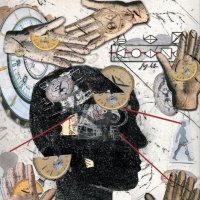How To Win Without Succeeding
Tennis Lessons For Ordinary People

How To Win Without Succeeding - Failure is The Norm
The concept of "How To Win Without Succeeding" may sound counter-intuitive but it reflects reality.
Most motivational speeches have an anecdote that features how someone overcame tremendous odds and yet came home a winner.
The personal development and self-help world is steeped in case studies and analysis of success. Numerous studies have been undertaken on successful people to understand what it was that they did to become so successful, how they did it and when they did it - and we are led to believe that we too can achieve comparable success if we replicate this.
We are told by the self-help gurus:
“You can be anything you want to be, if you put your mind to it.”
“Your thoughts have resonance and if you think enough positive thoughts for long enough, they will manifest.
But that is just not true.
This focus on success is very odd given that:
Success is the exception rather than the rule
Every scientific discovery, every new invention, every great innovation, every new idea of substance is the product of innumerable failures.
Most people do not realize all of their dreams. Most of the time, most of us fail. Hard work, skill, focus and persistence are not enough without the randomness of chance and the alignment of many factors, principally being in the right place with the right offering at the right time in the right environment.
For every successful business person there so many more who have failed - over 95% of new businesses fail.
Many people do not find the life-partner of their dreams.
Failure is the norm. Most of the time, your plans do not work out as you wanted them to.
Understanding Our Forgotten Failures
"The first reason to turn towards failure is that our efforts not to think about failure leave us with a severely distorted understanding of what it takes to be successful. " (Oliver Burkeman)
Here are some pointers to help you understand:
Where does all this leave us? The notion that you might fail can really slow you down. But it’s not the failure itself that’s the problem. The problem is your relationship with failure.
A good failure is a powerful learning experience.
So accepting your limitations, and embracing failure as an opportunity to learn, improve and grow, what next?
Well this is where you can gain valuable insights from the world of tennis about how to win without succeeding.
"Amateurs win the game when their opponent loses points, experts win the game by gaining points. " [Shane Parrish] Simon Ramo, a scientist and statistician, wrote a fascinating little book in the 1970s: Extraordinary Tennis Ordinary Players. Ramo identifies the crucial difference between the winner’s game and a loser’s game. In his essay, The Loser’s Game,
and referencing Ramo's work, Charles Ellis calls professional tennis a
“Winner’s Game.” While there is some degree of skill and luck involved,
the game is generally determined by the actions of the winner Amateur
tennis is an entirely different game. Not in how it is played or the
rules but, rather, in how it’s won. Long and powerful rallies are
generally a thing of the past. Mistakes are frequent. Balls are
constantly hit into nets or out of bounds. Double faults are nearly as
common as faults. Over many years' of observation and analysis
Ramo had concluded that there were 2 games of tennis. One game is played
by the professionals and the other is played by the rest of us. Ramo
found that 80 percent of points in high-level matches between
professional players were the result of winning shots and only 20
percent the result of unforced errors by one’s opponent. In
contrast, the dynamics of matches between amateurs were reversed. Eighty
percent of points came from unforced errors. An amateur player seldom
“beats” an opponent; rather, the player who makes the fewest mistakes,
who simply continues to keep the ball in play, usually ends up winning. From Ramo’s perspective, if you want to win at tennis, you have to adjust your strategy to your abilities. For the “ordinary” tennis player, this means understanding that amateur tennis is a “loser’s game” where success comes from avoiding losses. The
point is that most of us are amateurs but we refuse to believe it. This
is a problem because we’re often playing the game of the professionals.
What we should do in this case, when we’re the amateur, is to invert the problem and focus on how to win without succeeding: Rather than trying to win, we should avoid losing.
Two examples: [1] NETWORKING & REFERRALS Key Point:
Accept that just because someone you know and trust believes something
to be true, does not make it so [until corroborated by market data] it
just means that they genuinely believe it to be true. Specifics: Starting out First impressions Developing the relationship Early warning signsHow To Win Without Succeeding By Avoiding Losing

How To Win Without Succeeding By Avoiding Stupidity and Unnecessary Errors

[2] DECISION MAKING & EXERCISING JUDGEMENT
Key Point:
Understand and know how to avoid: [1] Cognitive Distortions - the psychology of human misjudgement; and how to apply [2] Mental Models.
Specifics:
- The first and most obvious point is to understand and be fully aware of these cognitive biases and cognitive distortions.
- Understand the power and pitfalls of Heuristics i.e. the mental short cuts that we all use all the time in everyday decisions.
- Understand the forces at play, especially the boundary between knowing what you do know and what you don't know. Understand your Circle Of Competence.
- When making important and significant decisions, invest the time to apply good Thinking Skills to the whole decision making process.
- Pay particular attention to First Principles Thinking and Second Order Thinking
- Understand and apply Mental Models
How To Win Without Succeeding With The Balanced Toolkit
Here is how it all hangs together.
I have listed above - with references and resources - some examples of how to win without succeeding in significant areas in life and business and where we can all take steps to increase our chances of winning by losing less.
This is a long game and if you engage you will find that the route to winning will take you along the road less traveled.
Feel free to contact me to discuss further if any aspect of this resonates with you.
How To Win Without Succeeding - Further Reading
The Challenges Of The Road Less Traveled
The Law of Response and Outcome
Embracing Uncertainty & Failure Is The better Option
Your Relationship With Failure
The Luck Factor - The Power Of Expectation
Secret Of Success - Identify Your Core Desire
Your Point Of Focus - Is Helping You Or Hindering You
Return from "How To Win Without Succeeding" to: Home Page
LATEST ARTICLES
Dealing With Distraction - Learning How To Live With Your "Attention Autopilot"
 Living With Your Attention Autopilot The good news about your Attention Autopilot is that it will keep you safe. It is continuously scanning your immediate environment for threats. The bad news is tha…
Living With Your Attention Autopilot The good news about your Attention Autopilot is that it will keep you safe. It is continuously scanning your immediate environment for threats. The bad news is tha…The Time Of Your Life - Recognising Moments Of Alignment For Action
 How will you recognise your moment of alignment for action? In this article I want to look at our relationship with time and in the context of the two main themes of this site, firstly as a thinking s…
How will you recognise your moment of alignment for action? In this article I want to look at our relationship with time and in the context of the two main themes of this site, firstly as a thinking s…The Metagame Approach to Second Order Thinking - 5 Guiding Principles
 How To Position Yourself For Survival & Success In A Complex Environment We treat life as though it is a complicated system, and our thinking skills and mental models are focused on understanding its…
How To Position Yourself For Survival & Success In A Complex Environment We treat life as though it is a complicated system, and our thinking skills and mental models are focused on understanding its…Outcome Over Optics - Long Game Outcomes Over Short-Term Ego Gains
 The Day I Learned To Focus On Outcome Over Optics I have never forgotten the day I learned to focus on outcomes over optics and figured out a very simple way of saving myself several hundred thousand…
The Day I Learned To Focus On Outcome Over Optics I have never forgotten the day I learned to focus on outcomes over optics and figured out a very simple way of saving myself several hundred thousand…The ETTO Principle - Why Near Enough Can Be Good Enough
 How To Balance the Efficiency-Thoroughness Trade Off The ETTO Principle describes the inherent trade-off between working efficiently and working thoroughly. This trade-off is something that affects…
How To Balance the Efficiency-Thoroughness Trade Off The ETTO Principle describes the inherent trade-off between working efficiently and working thoroughly. This trade-off is something that affects…Master The Art Of Drawing The Bow
 Focus On Process Not Outcome In so many areas of our lives, we focus on the outcome, not the process that we follow to achieve it. In the western world, we are conditioned to pay less attention to how…
Focus On Process Not Outcome In so many areas of our lives, we focus on the outcome, not the process that we follow to achieve it. In the western world, we are conditioned to pay less attention to how…And So This Is Christmas
 There Is No Path To Peace - The Path Is Peace Thich Nhat Hanh, the renowned Vietnamese Zen Buddhist monk, teacher, and peace activist, often spoke about peace as a state of being that begins within on…
There Is No Path To Peace - The Path Is Peace Thich Nhat Hanh, the renowned Vietnamese Zen Buddhist monk, teacher, and peace activist, often spoke about peace as a state of being that begins within on…Curiosity Skilled The Cat - Optimize For Interesting
 Curiosity Fuels Excellence The old adage, “Curiosity killed the cat,” warns of the dangers of venturing too far into the unknown. But what if we reimagine it not as a risk but as a gateway to developi…
Curiosity Fuels Excellence The old adage, “Curiosity killed the cat,” warns of the dangers of venturing too far into the unknown. But what if we reimagine it not as a risk but as a gateway to developi…Let Stillness Speak - Living Within A Complex System
 To let stlllness speak is to learn it's first major lesson: you are not your thoughts. To let stillness speak is about stepping back from the constant chatter of your mind and allowing a deeper, quiet…
To let stlllness speak is to learn it's first major lesson: you are not your thoughts. To let stillness speak is about stepping back from the constant chatter of your mind and allowing a deeper, quiet…Understanding Complex Systems Thinking - It's Not Complicated
 Understanding, and being able to work with, complexity is an important thinking skill.
We are all working with complex systems, and we do so every day. The biggest one is life itself. We automaticall…
Understanding, and being able to work with, complexity is an important thinking skill.
We are all working with complex systems, and we do so every day. The biggest one is life itself. We automaticall…Stay On The Bus - When To Keep On Going
 The Helsinki Bus Station Theory
Have you ever started a new project, initiative or role with a big vision and a determination to make a difference? Initially you were full of enthusiasm and highly mo…
The Helsinki Bus Station Theory
Have you ever started a new project, initiative or role with a big vision and a determination to make a difference? Initially you were full of enthusiasm and highly mo…Zen Thoughts Email Series
 Conversations With A Friend Zen Thoughts is an email series of 50 short messages spread over 3 months. The messages are written in the style of a conversation with a friend who is going through a toug…
Conversations With A Friend Zen Thoughts is an email series of 50 short messages spread over 3 months. The messages are written in the style of a conversation with a friend who is going through a toug…How to Get What You Value by Changing What You Measure
 Give Up Control & Gain Influence To Get What You Want
The metrics we choose to focus on can significantly shape our outcomes, sometimes in ways we don't intend. The challenge is to make sure that you…
Give Up Control & Gain Influence To Get What You Want
The metrics we choose to focus on can significantly shape our outcomes, sometimes in ways we don't intend. The challenge is to make sure that you…How to Become A Master At Overcoming Hard Moments
 "The best in the world are not the best because they win every point. It's because they lose again and again and have learned how to deal with it." This quote from Roger Federer has got a lot of cover…
"The best in the world are not the best because they win every point. It's because they lose again and again and have learned how to deal with it." This quote from Roger Federer has got a lot of cover…Drop The Story - Deal With Your Demons and Transform Your Experience
 Are you living your life from the stories you tell yourself? Learning how to drop the story and deal with that voice in your head can be a game changer. When you can do this you will have a powerful t…
Are you living your life from the stories you tell yourself? Learning how to drop the story and deal with that voice in your head can be a game changer. When you can do this you will have a powerful t…